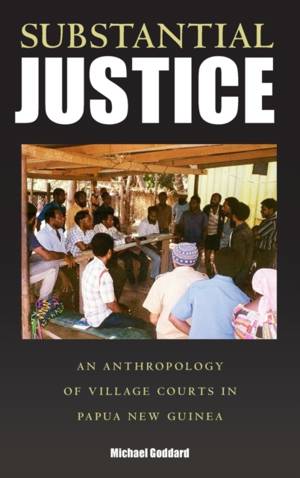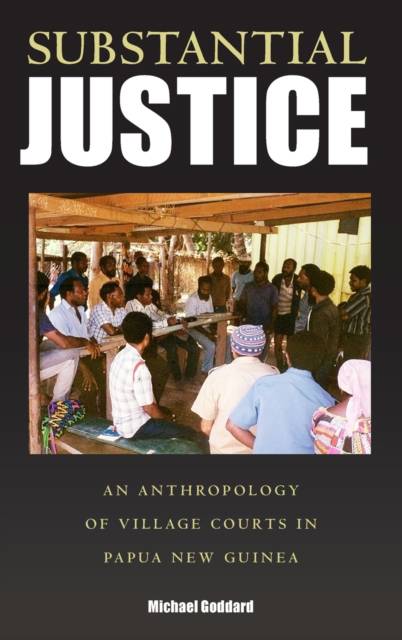
- Retrait gratuit dans votre magasin Club
- 7.000.000 titres dans notre catalogue
- Payer en toute sécurité
- Toujours un magasin près de chez vous
- Retrait gratuit dans votre magasin Club
- 7.000.0000 titres dans notre catalogue
- Payer en toute sécurité
- Toujours un magasin près de chez vous
Substantial Justice
An Anthropology of Village Courts in Papua New Guinea
Michael GoddardDescription
Papua New Guinea's village court system was introduced in 1974, partly in an effort to overcome the legal, geographical, and social distance between village societies and the country's formal courts. There are now more than 1100 village courts all over PNG, hearing thousands of cases each week. This anthropological study is grounded in ethnographic research on three different village courts and the communities they serve. It also explores the colonial historical background to the establishment of the village court system, and the local and global processes influencing the efforts of village courts to deal with everyday disputes among grassroots Melanesians.
Spécifications
Parties prenantes
- Auteur(s) :
- Editeur:
Contenu
- Nombre de pages :
- 334
- Langue:
- Anglais
Caractéristiques
- EAN:
- 9781845455613
- Date de parution :
- 01-07-09
- Format:
- Livre relié
- Format numérique:
- Genaaid
- Dimensions :
- 152 mm x 229 mm
- Poids :
- 612 g

Les avis
Nous publions uniquement les avis qui respectent les conditions requises. Consultez nos conditions pour les avis.






